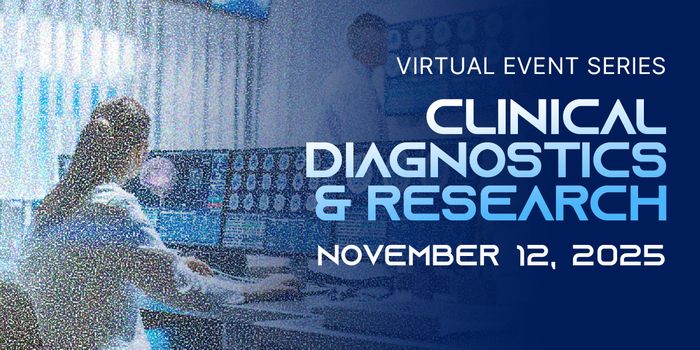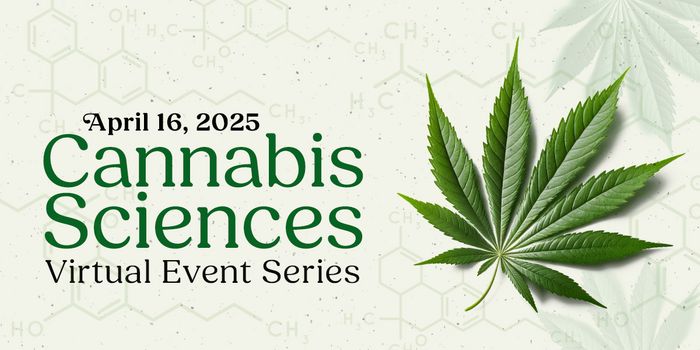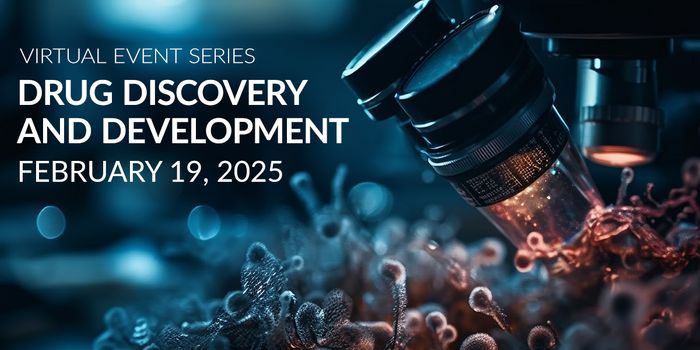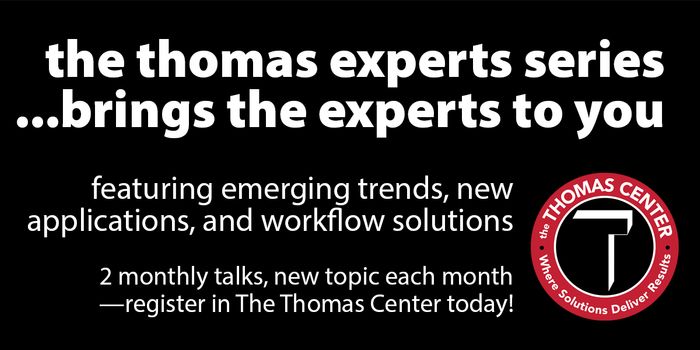
Waters Corporation is a technology innovator in chromatography, mass spectrometry, and thermal analysis instruments and software serving the life, materials, and food sciences industries for more than 60 years. We deliver scientific insights to improve human health and well-being.
Read our 2021 Sustainability Report to learn about our commitment and progress.
Waters Clinical Diagnostic Solutions - Analytical Technology for Better Care
As a clinical diagnostic laboratory, quickly providing the broadest range of tests with the best accuracy and selectivity is key, but many challenges can stand in the way. Current laboratory techniques can suffer from cross-reactivity that may skew results, availability of reagent kits for new tests can be slow, and sample preparation is often too manual.
Waters unlocks the potential of science by helping clinical diagnostic labs provide better patient care. Waters helps our customers enhance workflow efficiencies, improve specificity of results, and implement new diagnostic tests with LC-MS/MS solutions, so you can help provide accurate diagnosis and treatment without compromising compliance, flexibility, and performance.
April 12, 2022
EMEA: 9:00am-12:00pm CEST (UTC +2)
AMER: 2:00pm-5:00pm EDT (UTC -4)
April 13, 2022
APAC: 9:00am-5:00pm Singapore (UTC +8)
EMEA: 2:00pm-6:00pm CEST (UTC +2)
AMER: 11:00am-6:00pm EDT (UTC -4)
When it comes to providing better care, having analytical techniques that can provide high specificity and greater sensitivity all while increasing the laboratories capabilities is essential. Incorporating LC-MS/MS into your current laboratory workflow will provide the ability to increase your test menu, improve accuracy, and save send out cost and turnaround times.
This event is sponsored by Waters Corporation and hosted by Labroots.
Event highlights:
Join us for an educational event to discover the host possibilities that LC-MS/MS can provide, pushing the boundaries of your laboratory. In this event you will hear from experts on how they have implemented LC-MS/MS in their laboratory and the benefits it has provided for therapeutic areas like endocrinology and more. We will discuss the improvements to LC-MS/MS and how it can be easily adopted and implemented into your laboratory workflow. LC-MS/MS is no longer just for research but for routine use in a diagnostic laboratory.
In this event you will hear from users about clinical applications and be able to participate in our roundtable discussions where you can interact with experts in LC-MS/MS. This is a great opportunity to ask questions, provide feedback, as well as network with other laboratories using this technique.
- Auditorium – Featured presentations available from the Agenda tab. Sessions will be provided in different time zones: EMEA, AMER and APAC.
- Virtual Lab – Waters Corporation is sponsoring this event, explore the analytical IVD instruments solutions that can be easily implemented within your current workflow
- Poster Hall – view the latest scientific posters published by Waters
- Resource Hub – access the latest LC-MS/MS product and applications content from Waters
- Networking Lounge – chat with Waters Corporation experts on any of the clinical applications,
Educational objectives:
- See how LC-MS has evolved to be fit for purpose in routine clinical diagnostics
- Learn how you can integrate LC-MS into your clinical workflow
- Discover the uses of LC-MS in different application areas
- Explore future application uses of LC-MS
*Disclaimer: Featured guest speakers are sourced by Labroots.
-
Stephen Balloch
Senior ScientistBIOGRAPHY -
Dennis J. Dietzen, Ph.D., DABCC, FAACC
Professor of Pathology and Pediatrics, Washington University School of Medicine and Medical Director of Laboratories, St. Louis Children's HospitalBIOGRAPHY -
Nadja Feigenwinter
Principal ConsultingBIOGRAPHY -
Dominic Foley
Principal ScientistBIOGRAPHY -
Victoria Starkie
Principal Product Marketing ManagerBIOGRAPHY -
Robert Wardle
Senior ScientistBIOGRAPHY -
Dr. Rui Zhang
Senior Medical Scientist, Department of Biochemistry, PathWest Laboratory Medicine, Sir Charles Gardiner Hospital, Perth, Western Australia, AustraliaBIOGRAPHY
Speakers Share
-
Julius Aguila
Director of Service
BIOGRAPHY Presentation Information
Because your Analyses Counts, You Can Count On Us, Your Waters Partner
Instrument performance, uptime and cost control are critical for LC-MS/MS Clinical laboratories. Our Clinical Diagnostics Service programs are designed to ensure top instrument performance for your Waters Systems and fast support when issues arise. The FlexChoice mySystem Coverage Solutions for Clinical laboratories features regular performance maintenance visits, utilizing Waters Quality Parts, based on your utilization, and guaranteed on-site response if remote technical support doesn’t resolve a system issue.
Our Clinical Diagnostics Service Program is delivered by Waters’ highly trained and certified Clinical Field Teams, who bring the level of skill necessary to keep your instrument performing optimally, while providing the vigilant attention to detail needed to prevent or address any operational issues.
Learning objectives:
- Discover our range of Clinical Diagnostics Service programs
- See how we ensure top instrument performance for your Waters Systems
- Learn how our highly trained and certified Clinical Field Teams interact with customers around the world
-
Stephen Balloch
Senior Scientist
BIOGRAPHY Presentation Information
How the new MassTrak Calibrator and Quality Control Sets can benefit LC-MS/MS Analytical Methods
The use of LC-MS/MS in the clinical diagnostic laboratories for the analysis of immunosuppressive drugs and steroid hormones is rapidly becoming a common technique for its ability to provide accurate results through its superior specificity, greater sensitivity, and ability to quantitate multiple analytes in a single run. However, many LC-MS methods lack harmonization or standardization. The Waters™ MassTrak™ Calibrator and Quality Control Sets (IVD) for both endocrine steroids and immunosuppressant drugs contain metrologically traceable calibrators, aiding laboratories in their compliance to ISO 15189, and provide confidence in the accuracy of results when using validated LC-MS methods.
In this webinar, the characteristics of the MassTrak Calibrator and Quality Control Sets will be discussed and the performance of an in-house LC-MS/MS method for the analysis of steroid hormones and immunosuppressant drugs will be demonstrated.
Learning Objectives
- Ease of use and metrological traceability provided by Waters MassTrak Calibrator and QC Sets
- How the sets can help laboratories to achieve accurate, reproducible measurement of immunosuppressant drugs and steroid hormones
- Describe improvements in laboratory efficiency through the provision of lyophilized materials.
-
Dennis J. Dietzen, Ph.D., DABCC, FAACC
Professor of Pathology and Pediatrics, Washington University School of Medicine and Medical Director of Laboratories, St. Louis Children's Hospital
BIOGRAPHY Presentation Information
Bringing Mass Spectrometry to the Masses; Drug Screening Without Immunoassay
Modern drug screening is typically achieved via a screen-then-confirm approach in most clinical settings. Immunoassays are rapid and cost-efficient but suffer from a number of limitations including imperfect molecular specificity, high cutoff values for positivity, a static menu of drug targets, and sometimes long waits for confirmatory testing. False-positive and false-negative results due to antibody cross-reactivity and dilute urine are particularly frequent and underappreciated in neonatal and pediatric populations. Accurate ascertainment of drug exposure in children has significant clinical and medico-legal consequences.
In an effort to improve the accuracy and turnaround time for primary drug screening in our tertiary care, academic children’s hospital, we developed and characterized an LC-MS/MS drug screening assay to supplant immunoassay testing. The protocol required simple dilute and shoot sample preparation and detected 38 compounds at the lowest concentrations distinguishable from analytic noise. The menu of targets was developed in collaboration with emergency department and child protection physicians as well as toxicologists. Drug targets were identified by relative retention time, two specific precursor to product transitions and specific quantitative fragment ion ratios. Once implemented, we conducted a retrospective analysis of 3985 pediatric urine drug screens performed a year before (n = 1663) and after (n = 2322) implementation to examine the frequency and breadth of drug detection in our pediatric population.
The turnaround time for immunoassay testing during the period under study averaged 38 minutes but confirmatory testing was typically not available for an additional 24-72 hours. Turnaround time for the LC-MS/MS technique averaged 84 minutes. During the immunoassay screen/confirm period, 23% (293/1269) of samples from the general pediatric and 37% (147/394) of nursery populations had presumptively positive results. Of these presumptive positive compounds, 85% (288/338) from the general pediatric population and 40% (65/162) from the nursery cohort were ultimately confirmed by mass spectrometry. During the year following LC-MS/MS implementation, 31% (628/2052) of general pediatric and 18% (48/270) of the nursery samples were positive for one or more compounds. The overall rate of true-positive results increased from 18% to 29% after LC-MS/MS implementation. In the nursery population, immunoassays over-detected the presence of THC but under-detected exposure to cocaine.
A broadly targeted, analytically sensitive LC-MS/MS drug screening assay detects a larger number and variety of compounds in a single step compared to a screen then confirm approach initiated by immunoassay in our pediatric population. Results can be made available in a clinically appropriate time frame enabling rapid, appropriate disposition of patients in a variety of settings including the emergency department and labor/delivery.
-
Nadja Feigenwinter
Principal Consulting
BIOGRAPHY Presentation Information
Because your Analyses Counts, You Can Count On Us, Your Waters Partner
Instrument performance, uptime and cost control are critical for LC-MS/MS Clinical laboratories. Our Clinical Diagnostics Service programs are designed to ensure top instrument performance for your Waters Systems and fast support when issues arise. The FlexChoice mySystem Coverage Solutions for Clinical laboratories features regular performance maintenance visits, utilizing Waters Quality Parts, based on your utilization, and guaranteed on-site response if remote technical support doesn’t resolve a system issue.
Our Clinical Diagnostics Service Program is delivered by Waters’ highly trained and certified Clinical Field Teams, who bring the level of skill necessary to keep your instrument performing optimally, while providing the vigilant attention to detail needed to prevent or address any operational issues.
Learning objectives:
- Discover our range of Clinical Diagnostics Service programs
- See how we ensure top instrument performance for your Waters Systems
- Learn how our highly trained and certified Clinical Field Teams interact with customers around the world
-
Dominic Foley
Principal Scientist
BIOGRAPHY Presentation Information
How the new MassTrak Calibrator and Quality Control Sets can benefit LC-MS/MS Analytical Methods
The use of LC-MS/MS in the clinical diagnostic laboratories for the analysis of immunosuppressive drugs and steroid hormones is rapidly becoming a common technique for its ability to provide accurate results through its superior specificity, greater sensitivity, and ability to quantitate multiple analytes in a single run. However, many LC-MS methods lack harmonization or standardization. The Waters™ MassTrak™ Calibrator and Quality Control Sets (IVD) for both endocrine steroids and immunosuppressant drugs contain metrologically traceable calibrators, aiding laboratories in their compliance to ISO 15189, and provide confidence in the accuracy of results when using validated LC-MS methods.
In this webinar, the characteristics of the MassTrak Calibrator and Quality Control Sets will be discussed and the performance of an in-house LC-MS/MS method for the analysis of steroid hormones and immunosuppressant drugs will be demonstrated.
Learning Objectives:
- Ease of use and metrological traceability provided by Waters MassTrak Calibrator and QC Sets
- How the sets can help laboratories to achieve accurate, reproducible measurement of immunosuppressant drugs and steroid hormones
- Describe improvements in laboratory efficiency through the provision of lyophilized materials.
-
Victoria Starkie
Principal Product Marketing Manager
BIOGRAPHY Presentation Information
The future generation of LC-MS/MS Solutions
Clinical Diagnostics is more than collecting data it is turning that data into better patient care. At Waters Clinical we understand the importance of your results and the work you do, this is why we are dedicating an entire organization to improve our total solution offerings. In this presentation you will discover the changes we have made in our organization and the new MassTrak solutions to help you maintain compliance while providing flexibility and performance.
You will also be able to explore the journey of the sample through an automated LC/MS workflow from sample receipt to the reporting of results back into a LIMS. The advantages of automation are discussed, along with automation options for the clinical LC/MS workflow based on different laboratory needs. Sample tracking is a key part of any workflow and have been considered in all automated options shown, including other important requirements to ease the extraction and analysis process for the analyst.
Learning Objectives:
- Discover Waters Total Clinical Diagnostics Workflow
- Meet our new MassTrak IVD System Solutions
- Learn why automation is important for LC/MS workflows
- Understand what can be automated in LC/MS workflows
- See how automation can improve analytical performance and productivity
-
Robert Wardle
Senior Scientist
BIOGRAPHY Presentation Information
The Future Generation of LC-MS/MS Solutions
Clinical Diagnostics is more than collecting data it is turning that data into better patient care. At Waters Clinical we understand the importance of your results and the work you do, this is why we are dedicating an entire organization to improve our total solution offerings. In this presentation you will discover the changes we have made in our organization and the new MassTrak solutions to help you maintain compliance while providing flexibility and performance.
You will also be able to explore the journey of the sample through an automated LC/MS workflow from sample receipt to the reporting of results back into a LIMS. The advantages of automation are discussed, along with automation options for the clinical LC/MS workflow based on different laboratory needs. Sample tracking is a key part of any workflow and have been considered in all automated options shown, including other important requirements to ease the extraction and analysis process for the analyst.
Learning Objectives:
- Discover Waters Total Clinical Diagnostics Workflow
- Meet our new MassTrak IVD System Solutions
- Learn why automation is important for LC/MS workflows
- Understand what can be automated in LC/MS workflows
- See how automation can improve analytical performance and productivity
-
Dr. Rui Zhang
Senior Medical Scientist, Department of Biochemistry, PathWest Laboratory Medicine, Sir Charles Gardiner Hospital, Perth, Western Australia, Australia
BIOGRAPHY Presentation Information
Development of High Sensitivity LC-MS/MS Steroid Assays for Clinical Endocrinology Applications
Many medical conditions may require the measurement of various steroid hormones level in patients. The commonly used immunoassay (IA) methods are mostly single-analyte assays and prone to interferences. Some of these assays do not have the desired sensitivity to meet the clinical requirement. LC-MS/MS, on the other hand, offers analytical specificity superior to that of IA or conventional HPLC methods for low molecular weight analytes. LC-MS/MS can simultaneously detect multiple analytes from a very small volume of sample which is advantageous in analysing neonatal or children samples.
Several LC-MS/MS assays have been developed in our laboratory to measure a range of steroids for different endocrinology applications. A steroid panel assay which simultaneously detects 18 steroids was designed for better diagnoses and management of congenital adrenal hyperplasia (CAH) conditions. A LC-MS/MS assay that detects three estrogen steroids, estrone (E1), estradiol (E2) and estriol (E3) has a lower limit of quantitation (LLOQ) for E2 down to 5 pmol/L (1.36 pg/mL). This assay uses a derivatization method to enhance their detection sensitivity. Measurement at such level are desirable for monitoring estrogens among young children or breast cancer patients who are under treatment. A urinary free cortisol (UFC) method has also been developed using LC-MS/MS to detect cortisol, cortisone and prednisolone. The clear separation among these compounds provides an accurate measurement of UFC level which is often interfered by prednisolone in the IA method.
A few clinical cases will be presented with the application of these assays. Some important aspects of the assay development will be discussed with a focus on the routine laboratory operations. These include, but not limited to, assay design and validation, quality control programs, monitoring instrument operation conditions and define operation boundaries.
Please update your information
Certificate of Attendance
DOWNLOAD CERTIFICATE





















